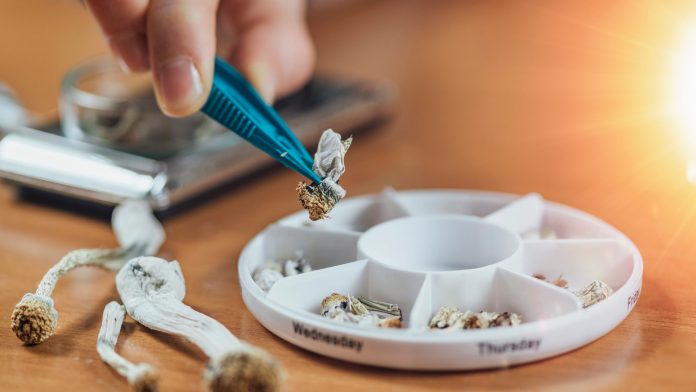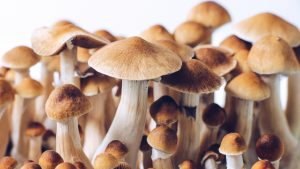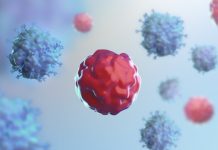
Evidence from a University of British Colombia investigation suggests that microdosing psilocybin may be an effective treatment for mental health conditions.
The Microdose.me project, published in Nature-Scientific Reports, analysed the impacts of microdosing psilocybin mushrooms over a 30-day period, discovering that the treatment enhanced mood and mental health. The findings build on previous research highlighting the therapeutic potential of employing psychedelic “magic” mushrooms to alleviate mental disorders.
Dr Zach Walsh, the study’s leader from the University of British Colombia, commented: “This is the largest longitudinal study of this kind to date of microdosing psilocybin and one of the few studies to engage a control group. Our findings of improved mood and reduced symptoms of depression, anxiety and stress add to the growing conversation about the therapeutic potential of microdosing.”
What is microdosing?
Psychedelic psilocybin mushrooms have been used in large doses for generations in some Indigenous cultures, which can result in dramatic alterations in mood and consciousness. Recent interest has now shifted from larger doses to microdoses that minimally interfere with daily functioning.
Microdosing is characterised as self-administering small enough doses of a substance to experience a therapeutic effect without impairing normal cognitive functioning. When microdosing psilocybin, the doses are usually as small as 0.1 to 0.3 grams of dried mushrooms and are taken three to five times per week.
The most prominent substances used for microdosing are psilocybin mushrooms and LSD, with psilocybin mushrooms considered to be non-addictive and relatively non-toxic, especially when compared to tobacco, opioids, and alcohol.

The Microdose.me project
The study monitored 953 participants over 30 days who administered regular small amounts of psilocybin and the second group of 180 people who did not microdose. The individuals completed a range of assessments that test mental health symptomology, mood, and measures of cognition.
One of the assessments was a smartphone finger tap test that measures psychomotor ability and can be used as a marker for neurodegenerative disorders, including Parkinson’s disease.
The results demonstrated that the individuals microdosing psilocybin showed improvement in their mood, depression, anxiety, and stress, compared to those who did not microdose. Analyses of the finger tap test illuminated that microdosers had a more positive change in performance, particularly in people aged over 55.
Joseph Rootman, a doctoral student at the University, commented: “Our findings of mood and mental health improvements associated with psilocybin microdosing align with previous studies of psychedelic microdosing, and add to them through the use of a longitudinal study design and large sample that allowed us to examine the consistency of effects across age, gender and their mental health.”
Dr Walsh said: “Despite the promising nature of these findings, there is a need for further research to more firmly establish the nature of the relationship between microdosing, mood and mental health, and the extent to which these effects are directly attributable to psilocybin rather than participant expectancies about the substance.
Rootman concluded: “Considering the tremendous health costs and ubiquity of depression and anxiety, as well as the sizable proportion of patients who do not respond to existing treatments, the potential for another approach to addressing these disorders warrants substantial consideration.”








